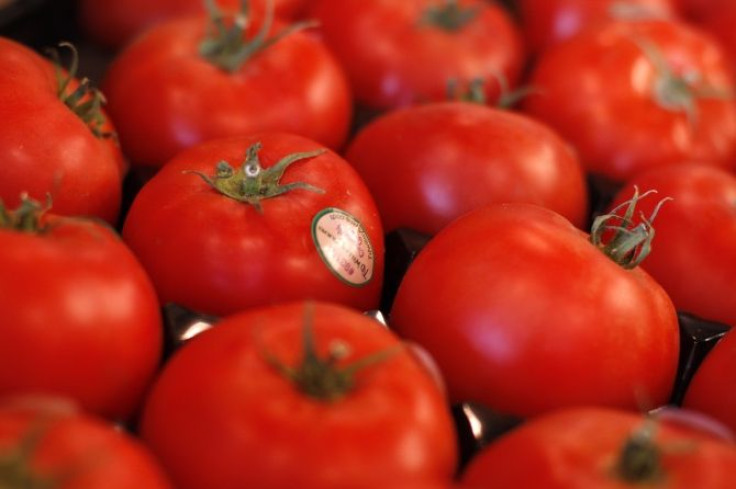Tomato Genome Decoded, Expect Better Flavor

Tomato's genetic structure has been decoded. Researchers say that this discovery will enable tomato breeders to grow tomatoes with long shelf life as well as better flavors. They say that selective, precision breeding will be possible not just in tomatoes but also in other fruits related to the tomato family.
"It’s really all about making a better tomato. This work enables a lot of things we just couldn’t do before," said Allen Van Deynze, a molecular geneticist at the Seed Biotechnology Center at the University of California, Davis.
The research began in 2003 but breakthrough came in only in 2008 when "next-generation" technologies became available to decode the genetic structure.
According to the researchers, major developments in the modern tomato came around 60 million years ago and have been carried on since then.
"Several of the genes 'born' at that second triplication stayed in the genome for tens of millions of years. Then, relatively recently, they changed their function — this brought about the appearance of the fleshy fruit as we know it today." The tomato is already an established model for fleshy fruit development, so the information will also be useful for breeding fruits such as strawberries, melons and bananas," said Giovanni Giuliano, Italian National Agency for New Technologies, Energy and Sustainable Economic Development in Rome, and lead researcher, Nature reports.
Experts say that we might soon have access to tomatoes that that home-grown taste.
"Now that we have the genome it will be possible to actually target the genes that control flavor separately from those that control shelf life. So it should be possible in the very near future to have tomatoes that last a long time but develop a very dark red color, are full of phyto chemicals and are much more tasty," said Professor Seymour at the University of Nottingham to BBC.
Breeding crops that are genetically modified have led to a lot of controversy and public concern in the past. Experts believe that knowledge of the genetic code will help breeders grow pesticide resistant crops.
"It's very likely at the moment that it will just be better breeding through conventional techniques. The genome sequence allows us to target those gene variants in the wild species and bring them into the cultivated lines and do that relatively effectively," said Prof Seymour.



























